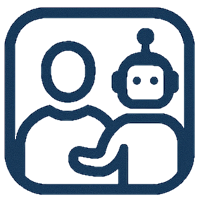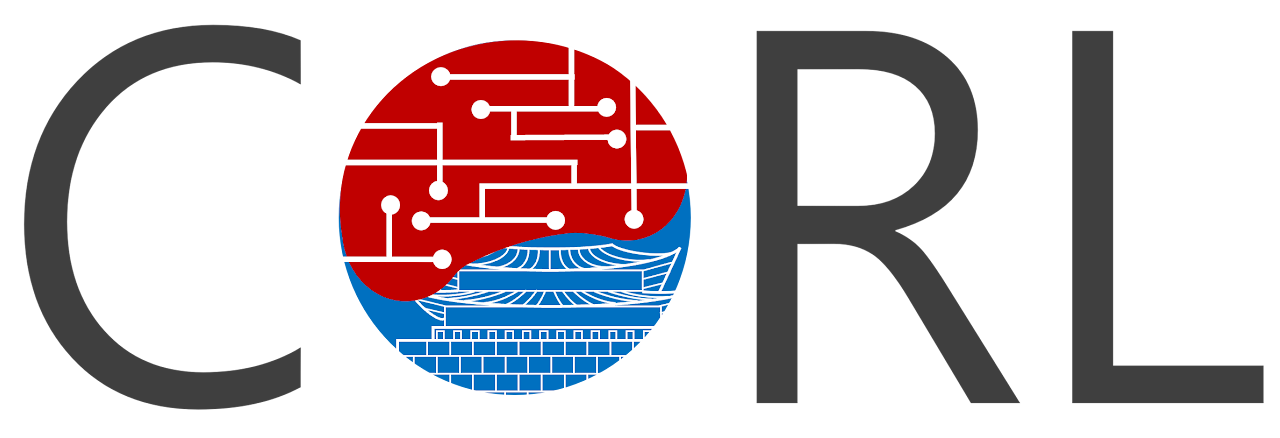 About iCARE Workshop
About iCARE Workshop
Welcome to the 1st workshop on iCARE @ CoRL2025: Intelligent Cobodied Assistance and Robotic Empowerment.
Worldwide, over 2.5 billion people need one or more assistive tools (e.g., wheelchairs, hearing aids, communication devices, seeing aids) and nearly 1 billion have no access to them. Assistive technology, involving the integration of robotics, AI, and human-centered design to empower people with diverse abilities, is fostering interdisciplinary collaboration.
The accessible and inclusive robot learning technology offers a truly "life-changing" potential. By providing intelligent cobodied assistance – where robots work intuitively with humans – we can open crucial doors to employment, education, and independent living for individuals with disabilities and the elderly.
From aiding to empowering, the workshop explores robotic empowerment, such as surgical assistive robots, exoskeleton, AR/VR glasses, embodied/cobodied AI, multilingual agents, driving aids, those that can help normal end users and improve their abilities. Indeed, robots possess "the potential to empower persons with diverse (dis)abilities".
The 1st iCARE workshop @CoRL2025 will provide a half-day session (poster, oral, invited talks) to integrate insights from assistive technology and cobodied AI into the robotics and learning community. We believe attendees can benefit from this interdisciplinary workshop.
📚 List of Topics
Topics of interest include but are not limited to the following:
- VLMs for accessibility: How can LLMs and VLMs be used to describe environments or objects to disable users, or to interpret user commands?
- Policy learning for assistive tasks: How can reinforcement learning (RL) enable assistive or wearable robots to empower the end users safely and adaptively?
- Lifelong and few-shot learning: How can robots rapidly adapt to new users or environments with limited data or without access to the training data or model weights?
- Simulation-to-Real transfer: How to use high-fidelity simulators to pretrain assistive behaviors before real-world deployment?
- Efficiency and portability: How efficient models can be developed and deployed in edge devices that have limited computational resources?
- Wearables and sensors: How can wearable devices (smart canes, vision aids, haptic feedback, etc) be integrated with robots to improve perception, planing, and performing?
- Multimodal perception and personalization: How can robots fuse vision, touch, speech and contextual cues to understand user needs, and how can models be personalized to individual disabilities?
- Inclusive mobility and navigation: What novel sensors, planning methods, or end-to-end learning approaches can give autonomy to wheelchairs or navigation aids for the visually impaired?
- Benchmarking and datasets: What kinds of new datasets are necessary and generated by involving the end users during the data generation process, like collection, annotation, evaluation?
- Formative and user study: How to design studies in different phases of system development, by involving the end users?
- Human-robot interaction: How the assistance and robots are easy-to-learn, easy-to-use, and long-term usable with friendly user experience?
📢 Call for Papers
Authors are invited to submit papers related to the topics of iCARE workshop. Top three papers will be awarded for an oral talk.
Submission Types:
- Short Papers (max 3 pages): extended abstract, preliminary results, proof of concept, demo application, study findings, etc.
- Full Papers (max 8 pages): original research contributions.
Submission Instruction:
- Papers should be submitted through OpenReview iCARE workshop.
- Acknowledgments, References, and Appendix are excluded in the page limit.
- Papers should be formatted using the CoRL 2025 LaTex template, here (https://drive.google.com/file/d/1XalwYG542cg2YAHo8STgZKxhAIA8_HSu/view?usp=sharing).
- Authors are encouraged to submit a supplementary file through OpenReview as a single zip file.
- All submissions are anonymous, and undergo a peer-review process.
- All accepted papers will be presented in a poster session.
- Top three papers will be invited to present 10 minutes each in our oral session.
- Please also kindly check the Instruction for Authors from CoRL conference.
Other Information:
- Papers that are being submitted or are preparing to submit to other conferences are welcome.
- Papers that are accepted or published by other conferences or journals are also welcome. Please indicate this clearly when submitting.
- Submissions and review comments are not publicly available in OpenReview. Only accepted papers are publicly available.
📅 Important Date:
- Submission Open: 11 Jul, 2025 (UTC-0), Submit via OpenReview
- Submission Deadline:
15 Aug, 2025 (UTC-0)29 Aug, 2025 (UTC-0) - Acceptance Notification:
01 Sep, 2025 (UTC-0)08 Sep, 2025 (UTC-0) - Workshop: 27 Sep, 2025
For any other questions, please feel free to contact us via: icare-workshop@googlegroups.com.
🗓️ Schedule
The 1st iCARE workshop will be a hybrid version for audience, with both in-person and virtual attendance options.
- Date / Time: September 27th, 2025. 13:30 - 16:30
- Venue: COEX Convention & Exhibition Center (513 Yeongdong-daero, Gangnam District, Seoul, South Korea)
- Room: 3F, E9 room
- Zoom meeting link: https://us05web.zoom.us/j/88929623960?pwd=XzdU7f6Uq12MYoHG5lZseHiOiP2rqC.1
| Time | Session | Speaker |
|---|---|---|
| 13:30 - 14:00 | Invited Talk | Prof. Qi Wu (University of Adelaide) Embodied Vision-and-Language Navigation |
| 14:00 - 14:30 | Invited Talk | Dr. Jianlong Fu (Microsoft Research Asia) GenRobot: Building VLA Foundation Models to Advance General-Purpose Service Robotics |
| 14:30 - 15:00 | Oral Session |
|
| 15:00 - 15:30 | Coffee Break | Poster Session
|
| 15:30 - 16:00 | Invited Talk | Prof. Ahmed H. Qureshi (Purdue University) Learning Manipulation Policies for Human Assistance |
| 16:00 - 16:30 | Invited Talk | Prof. Katja Mombaur (KIT) Optimizing Robotic Empowerment through Exoskeletons and Assistive Devices |












